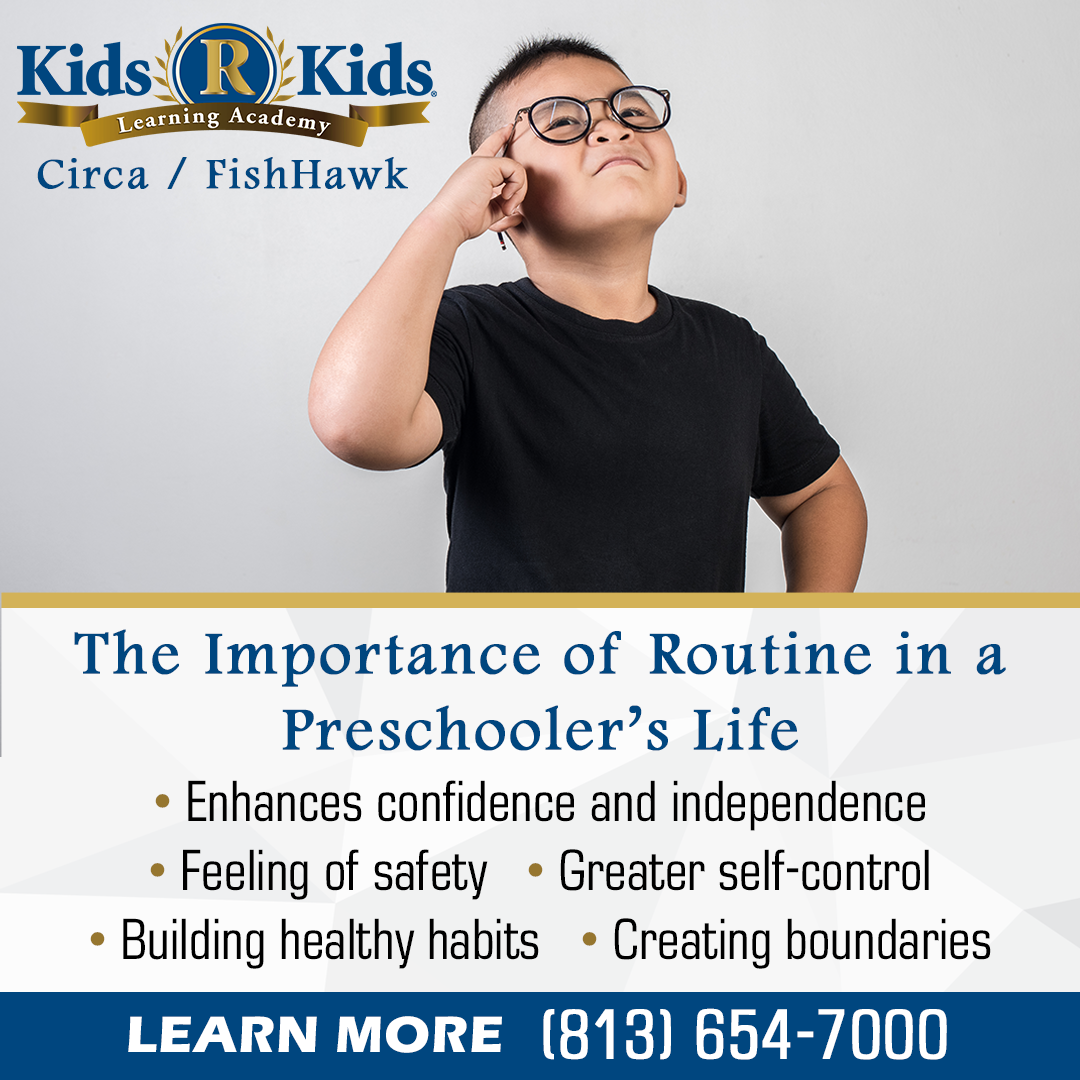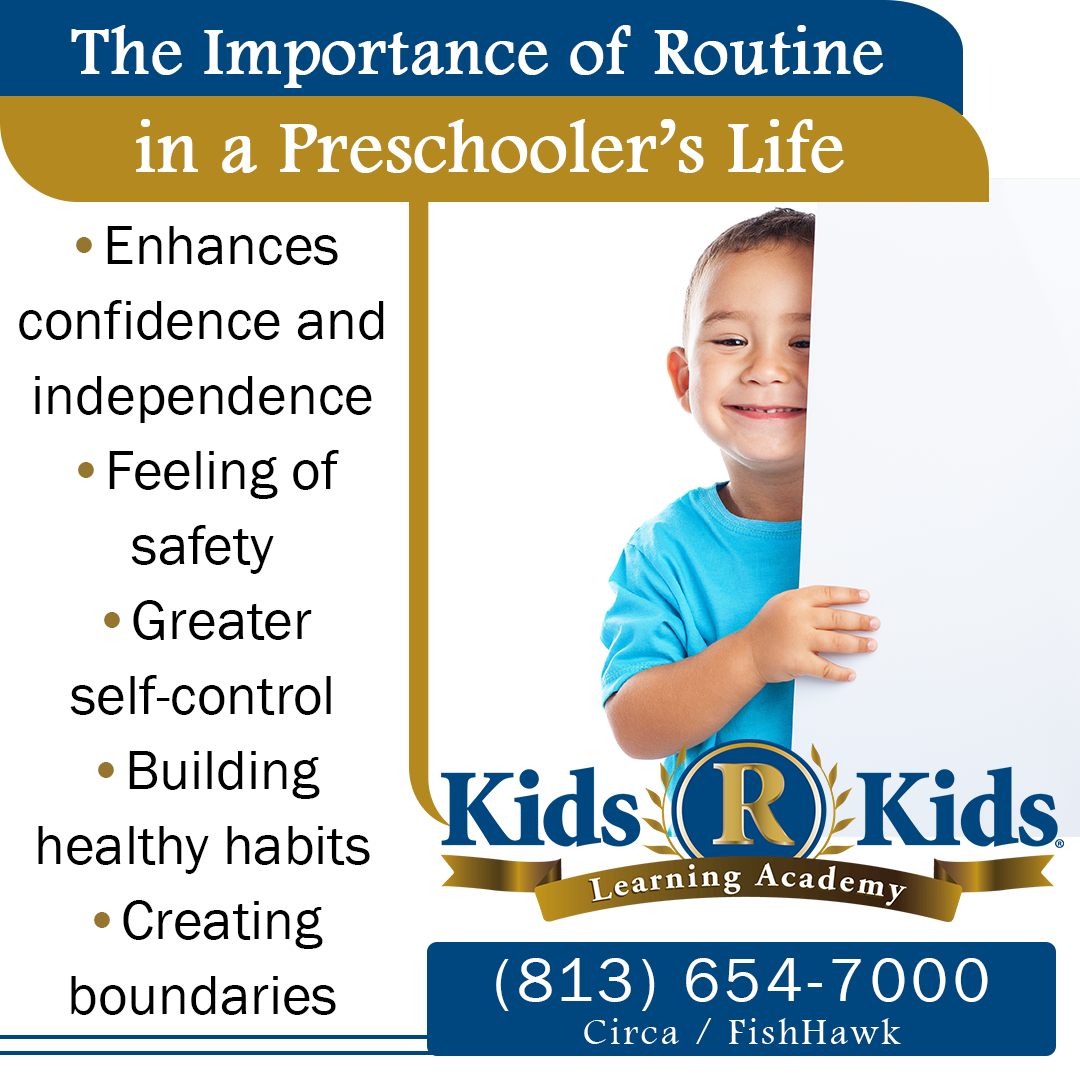The importance of routine in a preschooler’s life
Children, just like adults, manage changes best if they are expected and occur within the premise of a familiar routine. A predictable routine forms the foundation that allows children to feel safe, and feel confident enough to handle themselves better. As they master this ability to handle smaller changes, they can slowly begin to manage bigger changes, which is important for their growth. Kids ‘R’ Kids, an educational preschool, explains different ways in which routines help foster happier and stable children.
- Enhances confidence and independence: Knowing what to expect from daily life can help develop a child’s confidence. The past experience of being in the safety of a routine allows children to feel comfortable performing the same tasks with more confidence. For instance, keeping their shoes in place after school and changing their clothes before bedtime are tasks completed with assurance and efficiency.
- Feeling of safety: Routine provides children with clear boundaries, expectations, and consistency. The predictability and familiarity that comes with routine offer the perfect ‘safe space’ that kids need. Preschools provide a form of routine to children but every day is also filled with uncertainties to help children learn to handle small to big changes in the safety of their school routine. This sense of safety ensures children are not overwhelmed with stress.
- Greater self-control: A routine enables a child to strike a balance between fun tasks such as watching TV and functional tasks like brushing teeth. A routine that limits the time spent on enjoyable activities and fixes the time helps children move away from the instinct of instant gratification also. Eventually, children learn to take charge of their routine and chores.
- Building healthy habits: Repetition of activities defined in a routine becomes the basis of good habits. Activities such as washing hands before meals, cleaning teeth, and taking a walk after dinner not only entail better time management but also allow the formation of habits that will be carried over into adulthood. Inculcating new habits becomes easier when paired with pre-existing habits that are a part of a child’s routine. For instance, a reading habit can be introduced just before sleep time making it easier to adopt.
- Creating boundaries: A lack of routine gets in the way of respecting boundaries. It’s in a child’s nature to test boundaries. When a routine is created and habits are built around it, children understand the cause-and-effect concept. For instance, TV time cannot begin until lunch is finished or dessert is available only when all the vegetables are eaten. If there are no limits or habits set, children will be unable to regulate themselves and can ironically feel “out of control”.
This creation of boundaries is also important for the parents to manage their lives better and avoid the power struggle as much as possible.
Simple tips to create a routine for children
Every child and every family is different. Therefore, every routine should be designed based on a family’s unique situation and needs. Here are some basic outlines of a routine for a preschooler:
- Getting ready for preschool
- Getting ready for bed
- Fixed meal times with family
- Outdoor activities
- Visiting friends and family
- Holding a family game or movie night
- Creative activity time
- Doing family chores
Routines are crucial to give some structure and predictability to a child’s life but at the same time, a child should have time for free play. Free unstructured time allows children to manage unpredictability and change.
Why Kids ‘R’ kids?
The philosophy of “Hug First, Then Teach”, defines every aspect of what Kids ‘R’ Kids, Circa Fishhawk stands for. Unlike many daycare centers or childcare providers, its methodology is a whole-child approach. It constantly strives to strengthen and encourage every child’s emotional, intellectual, social, and physical well-being through the expertise of its childcare providers and a unique partnership with parents.
Kids ‘R’ Kids International is accredited by AdvancED®, the world’s largest education community, and the Southern Association of Colleges and Schools Council on Accreditation and School Improvement (SACS/CASI). SACS/CASI is an accreditation division of AdvancED®. This accreditation ensures that the high accreditation standards are met and exceeded.
Call today at (813) 654-7000 to learn more about the Kids ‘R’ Kids before and after school programs (Kindergarten to Grade 5) or to schedule a visit.

Contact Information:
Kids 'R' Kids Learning Academy of Circa / FishHawk
5815 Kids Crossing Drive
Lithia, FL 33547
United States
Keith Balot
(813) 654-7000
http://www.krkcirca.com/

